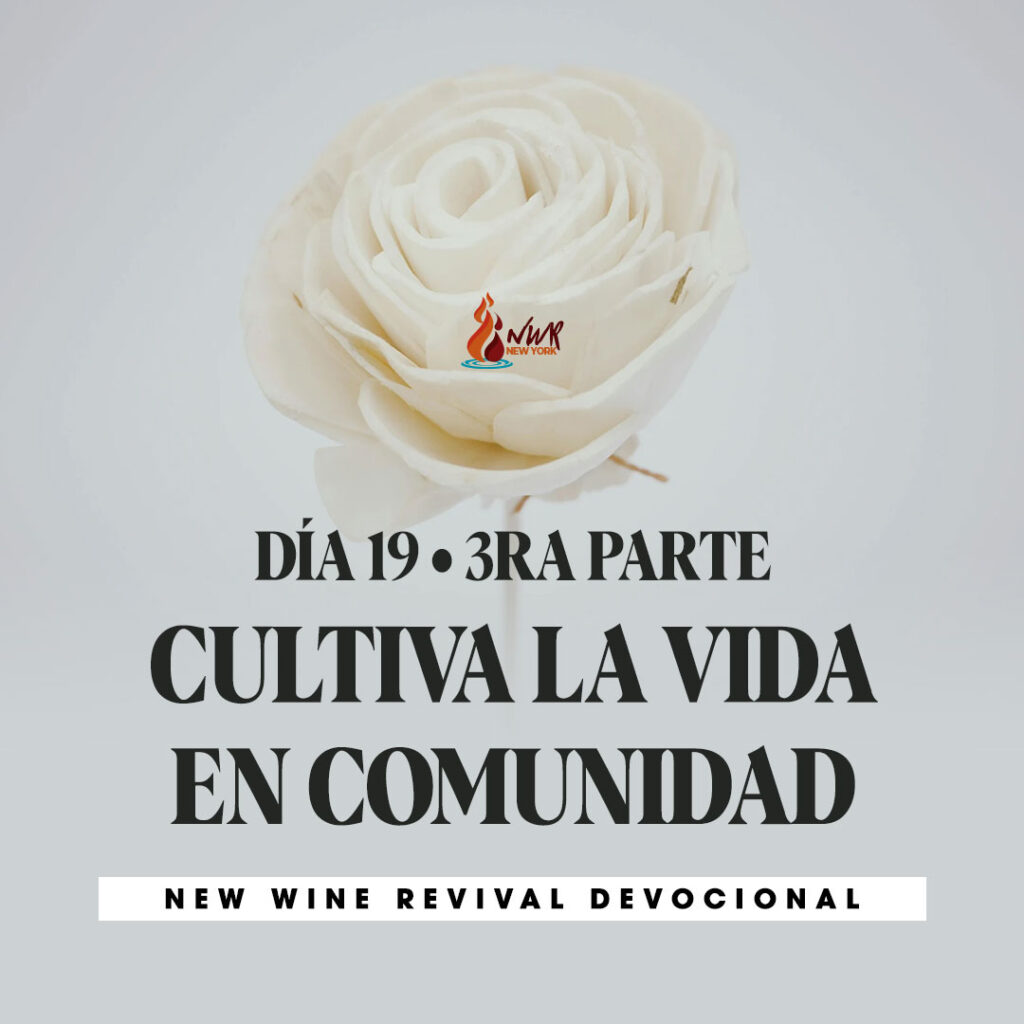
Hablando la verdad en amor, crezcamos en todos los aspectos en aquel que es la cabeza, es decir, Cristo.
EFESIOS 4:15 (LBLA)
Podemos desarrollar la humildad de manera práctica: reconociendo nuestras debilidades, siendo tolerantes con las debilidades de otros, estando dispuestos a ser corregidos y destacando lo que hacen los demás. Pablo aconsejó: «Vivan siempre en armonía. Y no sean orgullosos, sino traten como iguales a la gente humilde. No se crean más inteligentes que los demás». A los cristianos de Filipos les escribió: «Honren más a los demás que a ustedes. No se interesen solo en ustedes, sino interésense en la vida de los demás».
La humildad no es pensar menos de ti mismo, sino pensar menos en ti mismo. Humildad es pensar más en los demás. Las personas humildes se interesan tanto en servir a otros que no piensan en sí mismas.
Cultivar la vida en comunidad requiere amabilidad. La cortesía o amabilidad consiste en respetar nuestras diferencias, tener consideración con los sentimientos de otras personas y ser tolerantes con los que nos molestan. La Palabra de Dios dice: «Hagamos cuanto contribuya al bien… con el fin de edificarnos». Pablo le dijo a Tito: «El pueblo de Dios debe tener un gran corazón y ser amable».
En todas las iglesias, y en cualquier grupo pequeño, habrá siempre por lo menos una persona «difícil», a veces más de una. Estas pueden tener necesidades emocionales especiales, profundas inseguridades, costumbres irritantes o hábitos sociales no desarrollados. Podríamos llamarlas personas NGE; que «necesitan gracia extra».
Dios puso a tales personas en medio de nosotros tanto para nuestro beneficio como para el de ellas. Son una oportunidad para el crecimiento y a fin de poner a prueba la comunión: ¿Las amaremos como hermanos y hermanas y las trataremos con dignidad?
Los miembros de una familia no se aceptan porque sean inteligentes, hermosos o talentosos. Se aceptan porque pertenecen a la misma familia. Defendemos y protegemos a la familia. Uno de sus miembros puede ser algo tonto, pero es de nuestra familia. De la misma manera, la Biblia dice: «Ámense los unos a los otros con amor fraternal, respetándose y honrándose mutuamente».
Lo cierto es que todos tenemos nuestras manías y caprichos. Pero la comunidad no tiene nada que ver con compatibilidades. La base de nuestra comunión es nuestra relación con Dios: Somos una familia.
Reflexión:
El compañerismo de la iglesia es más importante que cualquier individualidad.
DAY 19/Third part • Cultivating Community
Speaking the truth in love, we will grow to become in every respect the mature body of him who is the Head, that is, Christ.
EPHESIANS 4:15 (NIV)
You can develop humility in very practical ways: by admitting your weaknesses, by being patient with others’ weaknesses, by being open to correction, and by pointing the spotlight on others. Paul advised, “Live in harmony with each other. Don’t try to act important, but enjoy the company of ordinary people. And don’t think you know it all!” To the Christians in Philippi he wrote, “Give more honor to others than to yourselves. Do not be interested only in your own life, but be interested in the lives of others.” Humility is not thinking less of yourself; it is thinking of yourself less.
Humility is thinking more of others. Humble people are so focused on serving others, they don’t think of themselves.
Cultivating community takes courtesy. Courtesy is respecting our differences, being considerate of each other’s feelings, and being patient with people who irritate us. The Bible says, “We must bear the ‘burden’ of being considerate of the doubts and fears of others.” Paul told Titus, “God’s people should be bighearted and courteous.”
In every church and in every small group, there is always at least one “difficult” person, usually more than one. These people may have special emotional needs, deep insecurities, irritating mannerisms, or poor social skills. You might call them EGR people — “Extra Grace Required.”
God put these people in our midst for both their benefit and ours. They are an opportunity for growth and a test of fellowship: Will we love them as brothers and sisters and treat them with dignity?
In a family, acceptance isn’t based on how smart or beautiful or talented you are. It’s based on the fact that we belong to each other. We defend and protect family. A family member may be a little goofy, but she’s one of us. In the same way, the Bible says, “Be devoted to each other like a loving family. Excel in showing respect for each other.”
The truth is, we all have quirks and annoying traits. But community has nothing to do with compatibility. The basis for our fellowship is our relationship to God: We’re family.
Reflection:
The fellowship of the church is more important than any individual.



